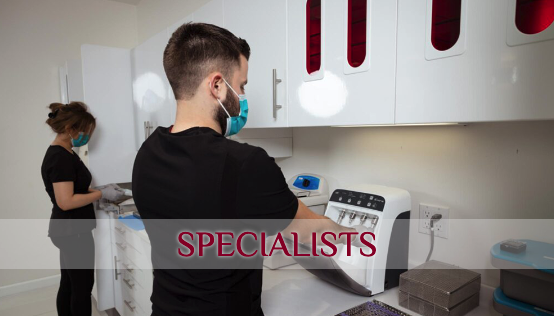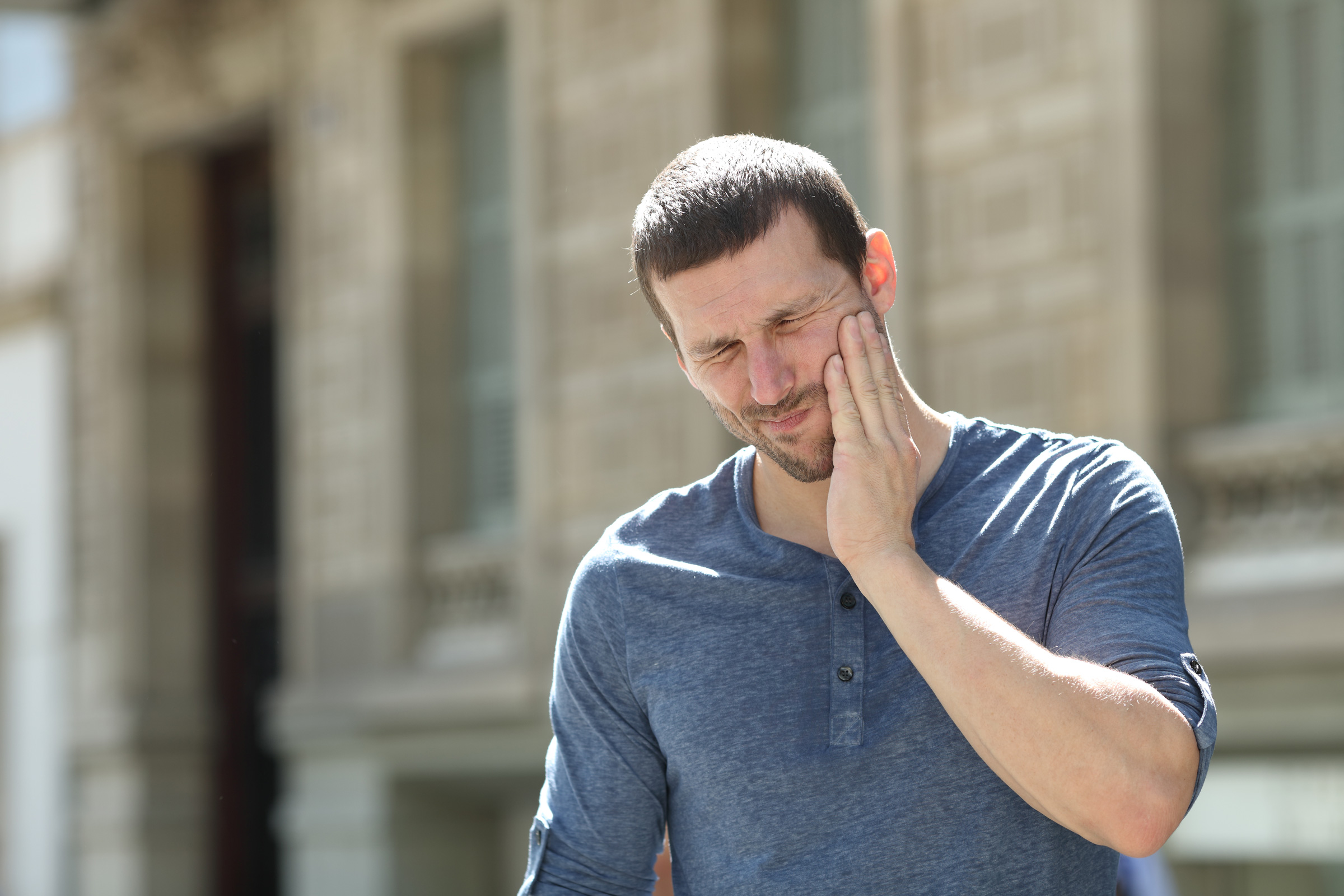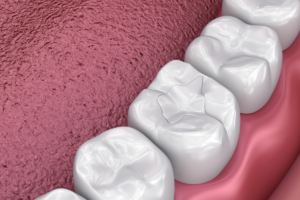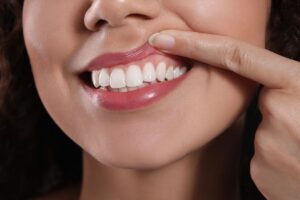According to TMJ basics, twelve percent of people in the United States experience TMJ disorders. TMJ disorders involve the joints and muscles of your jaw and are not easily diagnosed.
TMJ, the temporomandibular joint, is located at the base of the skull and connects the mandible allowing for movements both up and down as well as from side to side. These movements are required for chewing and talking.
TMJ Disorders
Conditions that affect the TMJ are referred to as TMJ disorders. There is a wide variety of these conditions with a range of possible causes and symptoms. Doctors may diagnose TMJ disorders based on a range of symptoms, including persistent pain around the jaw and restricted jaw movement. Some TMJ disorders resolve by themselves in a couple of months, while others are persistent or recurrent.
What May Cause TMJ Disorders?
There are many possible reasons that can lead to TMJ disorders; physical injuries, autoimmune diseases, dental surgeries, infections, grinding or clenching the teeth during sleep, and medical issues such as Arthritis may all lead to TMJ disorders. Genetic, hormonal, and environmental factors can affect TMJ as well.
Three main categories of TMJ disorders may affect different parts of the joint: internal derangement of the joint, Arthritis, and Myofascial pain, which affects the muscles that control the jaw.
What Can Help Prevent TMJ Symptoms?
Proper dental care maintains tooth alignment and can effectively prevent TMJ disorders. Needless to say, dental issues such as cavities, gum inflammation, or missing teeth will pave the way for the condition.
Brushing and flossing your teeth, not chewing on the tongue, chewing on both sides of your mouth, avoiding hard and chewy foods, and having regular check-ups will prevent TMJ disorders.
What Are the Symptoms of TMJ Disorders?
A range of symptoms can be correlated to TMJ.
- Pain
The most noticeable symptom of a TMJ disorder is pain. The pain occurs when you move your jaw while eating or chewing.
TMJ headaches and TMJ ear pain may also be present when you suffer from TMJ disorder.
- Restrictions in movement
Along with a TMJ disorder, restricted movement is very likely to develop, stopping the mouth from opening or moving in specific directions, causing severe discomfort.
- Sounds
You will notice unusual popping or clicking noises while eating, talking, or opening your mouth. These noises are quite standard and can be considered a symptom of TMJ alongside the other symptoms associated with TMJ disorders.
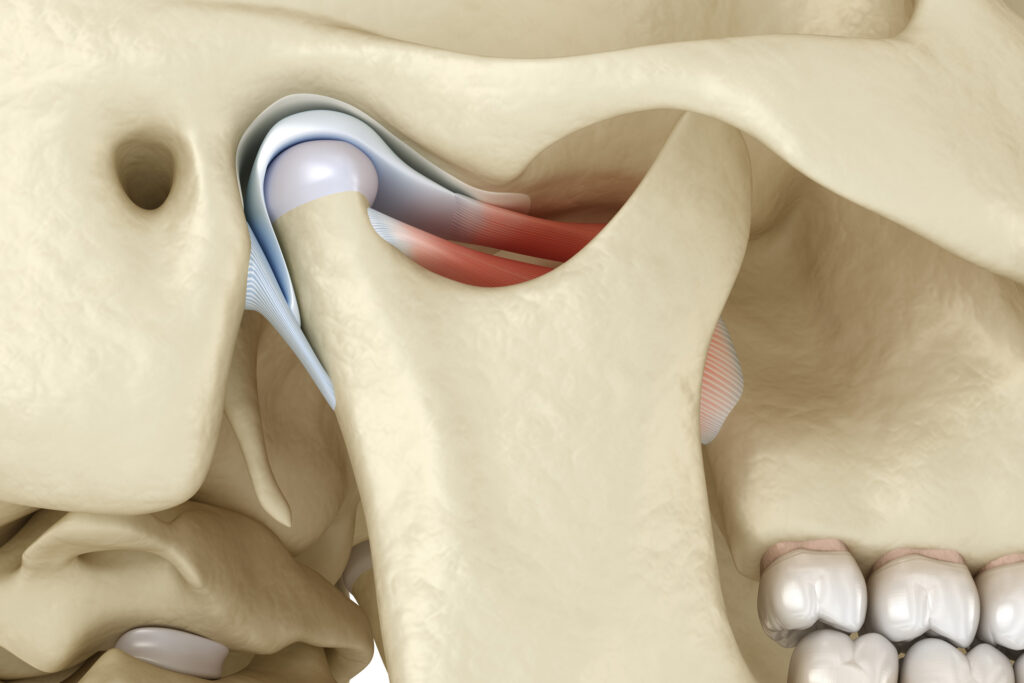
What Are The Treatments For TMJ?
TMJ disorders are not usually severe and will resolve on their own in a short time. However, they may happen to be long-lasting and severe, affecting the quality of your life. In this case, you should seek proper treatment to control the condition. The American Dental Association recommends trying noninvasive methods to manage these disorders before surgery. There are a few different approaches to treating TMJ disorders:
TMJ Self-care
In many cases, you can treat TMJ disorders at home. Changing your lifestyle can be enough to alleviate mild-to-moderate symptoms. Eating soft foods, avoiding chewing gum, and taking care not to clench your jaw can all be a big help. Having enough rest is also recommended. Decreasing the movements of your jaw can be very effective. The TMJ Association recommends following some basic self-care steps:
- You can massage your neck and head muscles to control tension.
- You can try managing your stress and anxiety.
- You can apply ice or moist heat to help reduce the symptoms.
- You can take anti-inflammatory drugs such as ibuprofen.
- You can have muscle relaxants or pain relievers.
- You can use stabilization splints or bite guards.
TMJ Medications
Sometimes TMJ disorders are driven by pre-existing issues and require more specific options to be treated.
- If the TMJ disorder is driven by jaw clenching during your sleep, using a mouth guard may relieve the symptoms.
- Over-the-counter pain medications can reduce discomfort.
- If degenerative diseases are causing TMJ disorders, steroid injections can be an effective alternative. The steroid will be injected into the joint itself, helping to soothe the pain and other symptoms. In some cases, this approach resolves the symptoms permanently.
TMJ Exercises
A few simple exercises can relieve TMJ pain. You can gently massage the painful area to reduce tension.
Strengthening exercises
-Open your mouth as wide as you can. Put your finger between your chin and your lower lip. Push inward, closing your mouth against the opposition.
-Set a thumb under your chin, and force your chin downward against it. Open your mouth against your thumb’s force and hold it open for 5-10 seconds.
Relaxation exercises
Sit or lie in a comfortable position; slowly inhale. Exhale slowly as long as you inhale. Repeat this process ten times.
Stretching exercises
-Place the tip of your tongue on the roof of your mouth. Move your lower jaw out and back in as far as it will go.
-Open your mouth as wide as possible and hold it in that position for ten seconds. Next, open your mouth slightly and glide your lower jaw back and forth ten times.
-Place your tongue on the roof of your mouth and open your mouth as wide as you can, holding it in that position for ten seconds.
-Close your mouth. Extend your lower jaw to the left and hold for ten seconds. Extend your lower jaw to the right and hold for ten seconds.

TMJ Surgery
Though the National Institute of Dental and Craniofacial Research recommends trying more conservative treatments, TMJ surgeries may be the only practical option in some cases.
A TMJ surgery can repair or replace parts of the jaw to treat TMJ disorders and improve jaw function. Surgery is the most efficient option to treat extreme cases of TMJ disorder when caused by damage to the joint or to the muscles surrounding the jaw.
Surgical procedures for TMJ disorders range from minimally invasive options to total joint replacement. In severe cases, jaw movement is highly restricted, and the discomfort is long-lasting. Therefore, you may need to replace the joint, though this method is rarely required.
According to the American Society of TMJ Surgeons, there are various surgical alternatives available to treat TMJ disorders:
- TMJ arthroscopy: This is a minimally invasive procedure, and you can return to your routine the same day. A micro-incision is made to repair the TMJ disk or remove a bone spur.
- Arthrocentesis: In this method, which is also minimally invasive, needles are inserted into the jaw to rinse the joint with sterile fluid in order to clean the joint and remove the inflammatory spurs.
- Modified Condylotomy: This type of mouth surgery frees up some space in your joint and prevents the jaw from locking up.
- Open joint surgery is an invasive technique in which the joint or the disk inside it is fixed. This method requires general anesthesia and an overnight hospital stay.
- Joint replacement: This is another invasive approach in which parts of the TMJ or the whole joint will be replaced. This surgery demands general anesthesia, and you will need to spend a night in the hospital afterward.
Recovery after TMJ Surgery
The duration of recovery varies from person to person, depending on the severity of the condition. The American Society of TMJ Surgeons evaluates typical recovery times for TMJ surgeries:
- After Arthrocentesis and TMJ arthroscopy, you will likely need several days to rest at home.
- Following Modified condylotomy, you will need at least two weeks of rest, and you may have bands or splints to hold your jaw in place.
- After the open joint surgery and the joint replacement, your total recovery will take up to 6 weeks.
Complications of TMJ Surgery
Based on a 2014 review, Trusted Source, different types of surgery have their different risks and complications, including pain, damage to adjacent structures, infection, and bleeding problems. Your artificial implants may also break down over time.
How to Cure TMJ Permanently
A lot of habits can help to cure TMJ permanently along with proper treatment. Stopping any habit that puts pressure on the joint will be effective. It would help if you also followed a soft food diet, good dental hygiene, and practiced stress control techniques.
If you are suffering from TMJ disorders or have symptoms similar to those of TMJ disorders, our staff at Aria Dental would welcome any queries. We will help you with the diagnosis and choosing the proper treatment depending on your condition.
During your initial appointment, we will discuss your concerns, and our team of dental specialists will provide you with the best solution in a peaceful environment.









